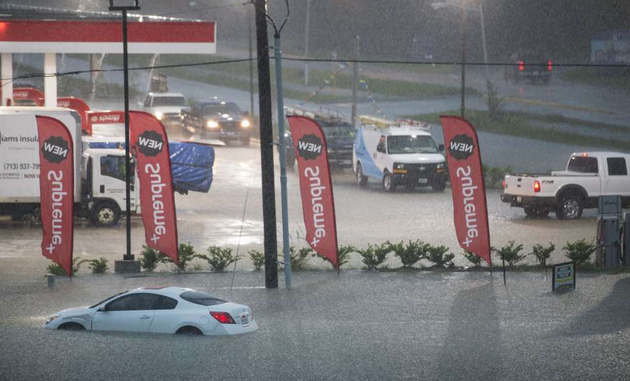
The Western Governors' Association keeps you updated on news of the West. Here are the western stories for the week starting Sept. 16, 2019 that you don't want to miss. (Photo: Houston Chronicle)
Migration corridors and habitat play a crucial role in maintaining the health and vitality of fish and wildlife species in the West. But those corridors are under increasing pressure from development.
A recent story from the Pew Trust highlights the challenges and notes that “to conserve wildlife corridors while reducing wildlife-vehicle collisions in the West, state and local governments need to take the lead on these issues and guide their agencies to effectively link science with policy.”
The WGA policy resolution, Wildlife Migration Corridors and Habitat, notes the role of states and further advocates for “federal agencies to support locally-developed initiatives to conserve fish and wildlife migration corridors and habitat ... and substantively consult with Governors and state agencies on land management for migration corridors or habitat. Read, download the resolution.
The work of the Migration Corridor Advisory Group in Wyoming is an example of state-level collaboration. The group selected by Gov. Mark Gordon, according to the Jackson Hole News & Guide, has "disparate backgrounds — representing oil and gas, agriculture, mining, hunters, the Wyoming Game and Fish Commission, conservation and counties." (More)
The Casper Star-Tribune reported the group shared recommendations this week with the governor on how the state could "protect and preserve its iconic migration corridors." The story noted that while migration corridor discussions often pit "energy developers against environmental groups, some in the advisory group suggested an oft-overlooked middle ground exists, too.”
“The governor picked people who believe in the long-term health of Wyoming and want to have hard, but important, conversations,” said rancher Marissa Taylor. “I don’t think he picked people who normally get to come to these conversations, because I don’t think he was looking for the same answers.”
Flooding in the West: Severe flooding is again threatening a western state, as heavy rain wreaks havoc in southeast Texas, including flash flood watches in Houston and Beaumont. Find the latest updates in the Houston Chronicle. Last week’s intense storms in South Dakota resulted in unprecedented flooding that shut down part of Interstate 90 for the first time since its construction in the 1950s. Learn more about the weather events that South Dakota Gov. Kristi Noem is calling “a slow-rolling natural disaster of epic proportions.”
In the Wind: Commissioners in Carbon County, Montana recently approved construction of a wind farm almost a decade in the making. The 114-turbine, $406 million project is expected to produce enough electricity to power more than 76,000 homes per year. Xcel Energy has tapped Mortenson to build a 229-turbine, $743 million wind farm in Colorado spanning 100,000 acres in Cheyenne and Kit Carson counties. Both projects are expected to be complete by the end of 2020.
Meet America’s Biggest Landowners: According to Bloomberg, “the 100 largest owners of private property in the U.S., newcomers and old-timers together, have 40 million acres, or approximately 2% of the country’s land mass.” That’s an area equivalent to the size of Florida. Check out this interactive map to see how much of that acreage falls within the western half of the country – and who owns it.
Waste Not, Want Not: New Mexico state regulators, in partnership with New Mexico State University, are studying how wastewater from the state’s oil and gas industry can be treated and reused. According to the Associated Press, the “new consortium … is charged with filling in scientific gaps and researching technological solutions for dealing with what's known in the oilfield as produced water.” Learn more.
Get the latest news about the West and its governors by following the Western Governors' Association on Twitter, Facebook and LinkedIn.